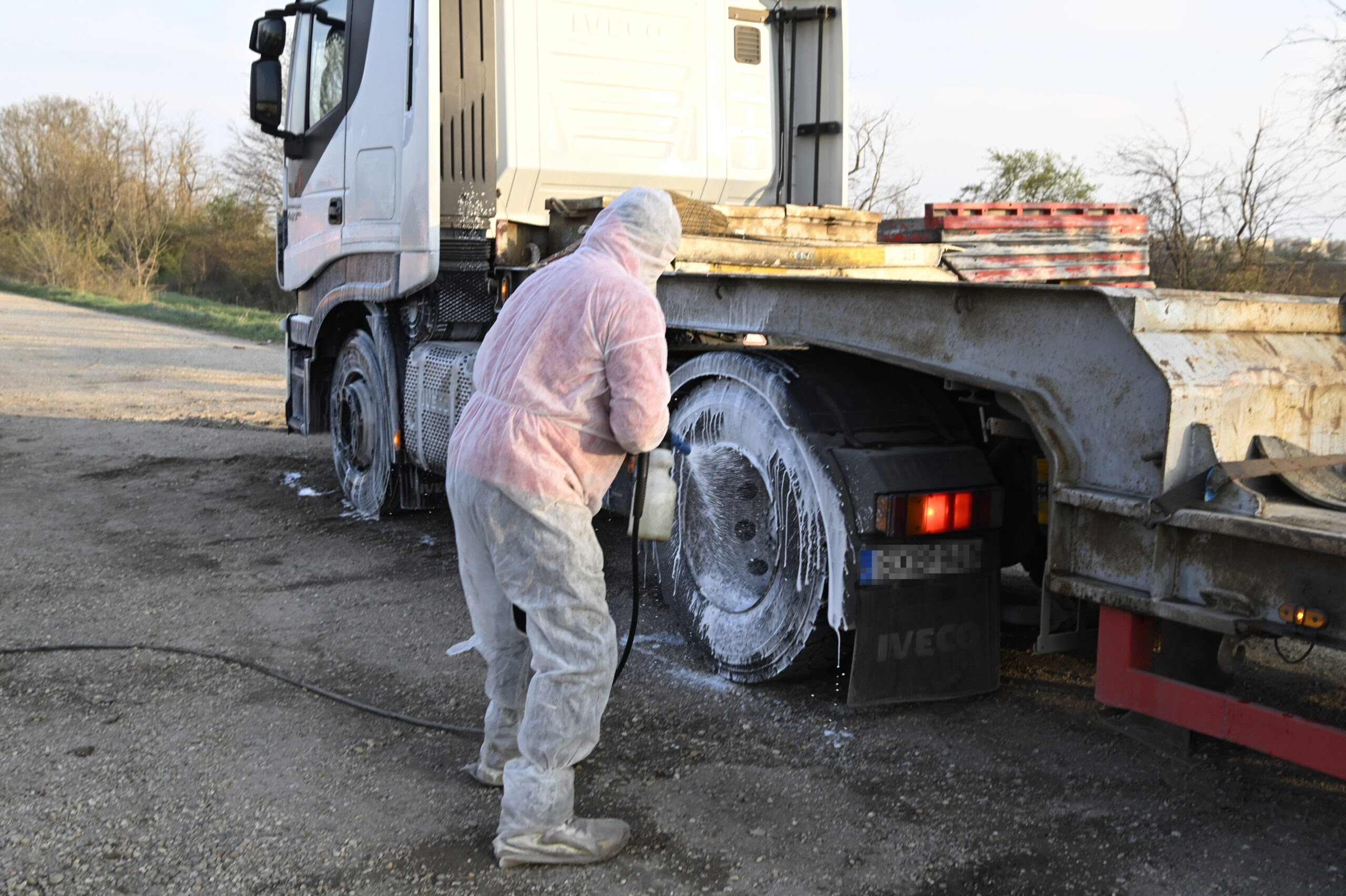
The Agriculture Minister said that all exhibitions and fairs involving susceptible animals will be banned.Continue reading

The government is creating an opportunity for farmers affected by foot-and-mouth disease (FMD) to receive financial support from the Wage Guarantee Fund, Minister of Agriculture István Nagy announced. Meanwhile, the National Food Chain Safety Office said that new measures have been introduced from March 30, to control the outbreak.
The minister pointed out that the emergence of the foot-and-mouth disease virus in livestock has serious economic consequences due to its extremely high contagiousness and rapid spread. In this situation, the government is providing assistance to farmers, both to ease the burden of production losses and to safeguard the jobs of livestock farm workers, he stressed.
He noted that agricultural enterprises affected by the outbreak could benefit from the Wage Guarantee Fund to mitigate their losses. This possibility will help to ensure that the farms affected by the outbreak can resume farming as soon as possible after the animals have been destroyed and the necessary disinfection work has been carried out, the minister said.
István Nagy also pointed out that the compensation procedure for the already eradicated farm in Kisbajcs (northwestern Hungary, where the first case was detected) is currently underway. The state compensation scheme covers a significant part of the damage caused to farms by the reported diseases from the agricultural compensation fund.
The costs of eradicating the outbreak, such as the slaughter of animals, the disposal of animal carcasses, the purchase of the necessary equipment and tools, the destruction of contaminated materials and disinfection, are covered by the state budget.
The government is providing all human and material resources to stop the virus, but the cooperation of livestock farmers is also necessary: official regulations must be respected, the minister emphasized in the statement.
In order to control the foot-and-mouth disease outbreak, Chief Veterinary Officer Szabolcs Pásztor ordered new measures from March 30, and also modified the existing ones: for instance, the organization of fairs and exhibitions of susceptible species will be banned throughout the country, the National Food Chain Safety Office announced.
The statement said that for all restricted areas, the introduction of susceptible animals and the export of animals outside Hungary, regardless of their purpose, is prohibited. It was stressed that in the protection and surveillance zones around outbreaks in southern Slovakia and northwestern Hungary, susceptible animals must be kept confined until at least April 7, and may not be allowed to graze, paddock, or run.
In these areas, apart from domestic slaughter, susceptible animals may only be slaughtered in slaughterhouses designated by the authority and the resulting fresh meat is subject to a number of rules, such as not being exported to other EU Member States or third countries.
It was also pointed out that the so-called further restricted areas outside the protection and surveillance zones include Győr-Moson-Sopron county and the Komárom, Tata, and Esztergom districts of the neighboring Komárom-Esztergom county.
It was reported that the virus is also spread by wind and that this is currently the most likely mode of transmission in the area. Although a vaccine against FMD exists, it only plays a role in reducing virus shedding, vaccinated animals have to be killed later and therefore their widespread use is not possible. “The only way to regain our immunity and thus lift the trade restrictions is to eradicate all vaccinated animals,” the National Food Chain Safety Office emphasized.
Meanwhile, another outbreak has been identified in western Slovakia, in Plavecký Štvrtok, in the Bratislava region near the Austrian border.
Napunk reports that this is the largest cattle farm affected so far and one of the largest dairy farms in the country. It belongs to the Danish FirstFarms group and has more than three thousand animals.
Agriculture Minister Richard Takáč said that vaccination of the animals on the affected farm had already started on Sunday evening to slow the spread of the infection, and that slaughter would begin on Monday. The cause is still being investigated, but the farm concerned was recently linked to a farm in Hungary which has already been found to be infected, writes Napunk.
Via MTI, Napunk, Featured photo via Pixabay